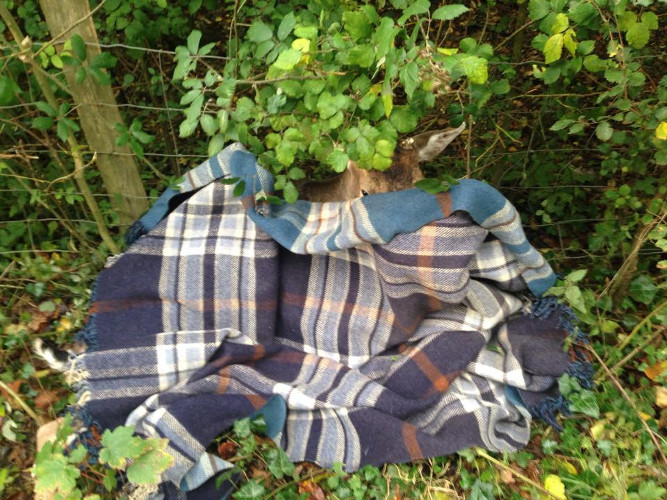Deer on our roads
Accidents involving our cars and deer sadly happen throughout the year, but there is a peak from October to January. This is mainly due to the increased movement of deer during their rut and, when rush-hour traffic coincides with the peak in deer activity, around dawn and dusk. We have listed some important points to remember should you accidentally hit a deer, or other wild animal.
- Stop your car in a safe position, put your hazard lights on, try to remain calm and assess the situation carefully.
- DO NOT attempt to move the animal off the road, unless you can in total safety. A frightened wild animal that is in pain can be very dangerous and, may attempt to bite you, or may suddenly run into the path of another vehicles. If you are able to place a coat, or blanket, over the animal's head this will help to keep the animal calm.
- If at all possible remain on the scene and ring either the police, a local wildlife rescue, or the RSPCA on their national number 0300-1234-999. The local police usually hold a list of vets who may be available to attend a large injured wildlife casualty, and can also give you an incident number for insurance purposes.
- Don't assume your car will be safe to drive afterwards. Most large deer will destroy the front of a car at speeds of only 30mph. Check very carefully your car's tyres, lights and look for any loose parts. Always use full beam when driving on dark country roads, but dip your lights if you see a deer or other wild animal, otherwise you may dazzle it and cause it to freeze in your path. Keep a watch for deer warning signs and reduce your speed. These deer signs are there to warn you that accidents involving deer have happened in that area. If you do see a deer crossing the road in front of you slow right down, or stop if possible, as often it will be followed by others.

Courtesy of Seahaven Bird Rescue